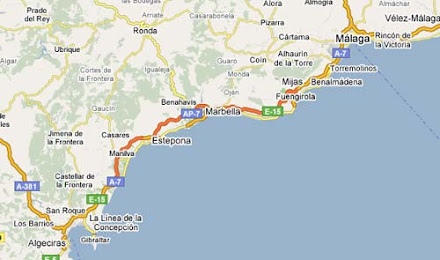A short train ride from central Madrid is a scruffy plot of land covered in weeds and surrounded by wire fencing. In just a couple of months work is expected to start to transform the site into Spain's first ever retirement home for gay and lesbian residents. Spain has been at the vanguard of Europe in terms of gay rights in recent years, but activists say reforming laws has been easier than changing attitudes. "Gay old people have to go back in the closet when they enter retirement homes," explains Federico Armenteros, who runs the December 26th Foundation in Madrid. It is named after the date in 1979 when the law used during Gen Franco's dictatorship to imprison homosexuals - or to send them for "cure" with electric shocks - was repealed. "For many years, a lot of people believed that homosexuals were sick and sinners," Mr Armenteros says. "That is more pronounced among older people, and hard to change," So the foundation has been working on a solution. It has formed a co-operative, recruited architects and designed a luxury, landscaped retirement complex - complete with 115 apartments, gym, spa and restaurant. There is space for yoga, Tai Chi and dance classes - and plans to house archive material for the first research centre on the history of the gay rights movement in Spain. Designed to be "gay-friendly", the Foundation says the home will be open to anyone regardless of their sexuality. Jose Maria Herreras describes it as a dream come true. He looks relaxed, sitting at street cafe in Chueca - the gay heart of Madrid. But Jose is 65 and lives in a retirement home. He says his life has been miserable ever since the other residents discovered he was gay. "They started to steer clear of me and insult me," he explains. "They called me 'queer' and it made me feel awful. My room has two beds but no-one wants to share with me. So I'm alone and it's bad. "I have to make myself as invisible as possible - go back in the closet - so they don't notice me. And I spend as much time outside the home as possible." Gay rights activists believe that experience is widespread. Predominantly Catholic Spain was among the first countries to legalise gay marriage and adoption. Gay pride celebrations in Madrid are among the best-known and most extravagant. The formerly run-down neighbourhood of Chueca now has a thriving gay scene including clubs, saunas, bars and bookshops. But four decades of Gen Franco's right-wing dictatorship meant that change came late to Spain and has spread slowly. "We only started fighting for our rights in the 1980s," explains Mili Hernandez, who opened Madrid's first gay and lesbian bookstore, Berkana, in 1993. "Until 1979 there was a law that [they] could take us to jail just for walking on the streets and being a bit camp." The 1980s Aids epidemic was another setback for equal-rights campaigners. "Now we have [some] of the best laws in the world for homosexuals, but we didn't have enough time to change mentalities," Ms Hernandez says, and points out that there are still very few high-profile, openly gay role models in the country. "We're still in the closet," she says. The bookstore owner sympathises with the problems of gay pensioners in care but she would prefer a different approach. "I think we should go to the homes and ask for our rights. Ask for a double room, and tell them we are gay. We should try to insist." But plans for the alternative home are already well advanced. "It's too tough to make people who are suffering now wait until society changes and the discrimination ends - when people whisper about you and call you names, and won't enter your room," argues Federico Armenteros. "These things are shrinking but unfortunately they exist." He and his partner have already signed up for an apartment. "I'll be living in a quality place, with people who respect, understand, love and care for me," Mr Armenteros says. "Usually, when you end up in a home you're just another number. But this is something completely different." A flat at the new complex should also work out considerably cheaper than the average retirement home. That is largely because a sympathetic local mayor has granted a low-cost 75-year lease on the land. The co-operative system means members will cover 40% of the home's costs in advance while remaining funds will be sought from the banks. For the architects who have drawn up the plans - for no charge, so far - the project makes sound sense. "This is a project which will actually happen - that's important because we've done a lot of unnecessary building in Spain," says chief architect Julio Touza Sacristan, walking the plot with his sketches and artist's impressions. But he also got involved because he saw a social need for the residence. "I'm not sure everyone would like to be associated with such a project," he says. "We're not as modern as we think we are in Spain but we think this is really necessary." For Jose Maria Herreras, the place cannot be built quickly enough. "This is somewhere where everyone will be equal," he says. "It's a totally different home where we won't have to hide who we are. We will be people. I will be free again." A landscaped, luxury home is envisaged
A landscaped, luxury home is envisaged For now the site of the home is just wasteland
For now the site of the home is just wasteland How the home should look eventually
How the home should look eventually
You Might Also Like :















0 comments:
Post a Comment